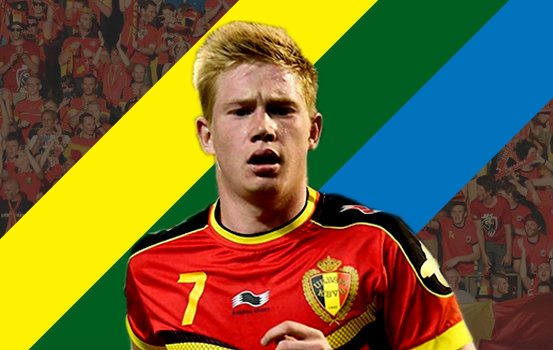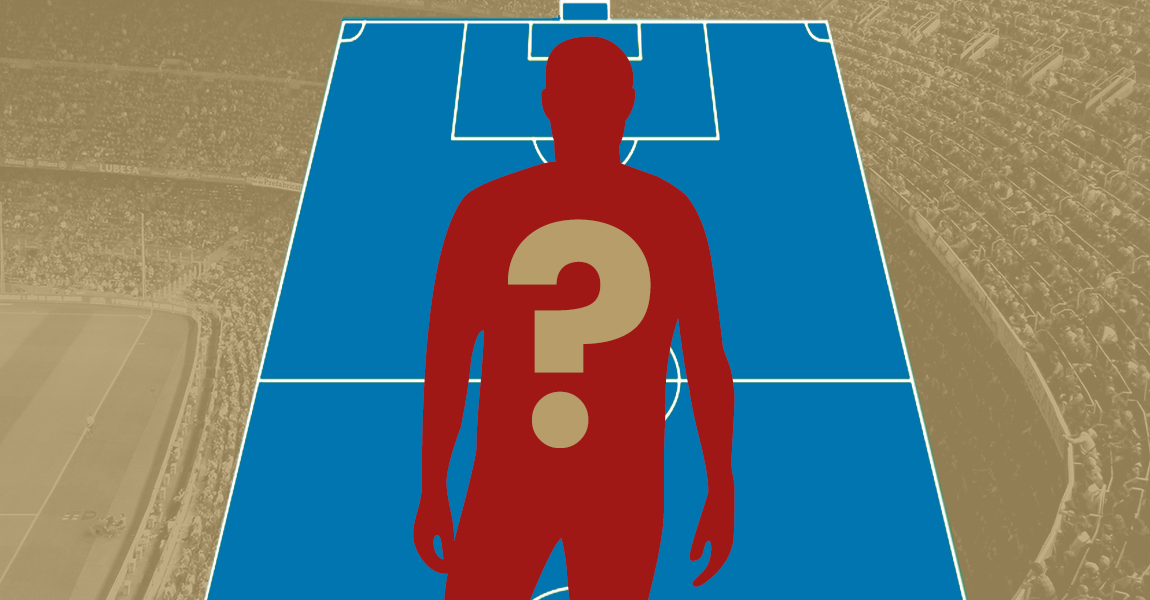At this time at both the club level of world football and the international level, no position on the pitch seems to be as important as the playmaker. A quality playmaker can make even a mediocre striker seem to be as prolific as they come. He can dictate play, pick out the passes, and rip the opposition to shreds. International sides such as France and Italy allow their respective creators, Yohan Cabaye and Andrea Pirlo, to sit deep, dictate the tempo of the play, and pick out the killer pass. Other sides like the Netherlands and Germany let their maestro’s play in a more attacking sense, attack the defense with their dribbling, and thread the needle with their passes. Wesley Snjeider and Mesut Ozil do this so brilliantly for their respective national teams. But very few teams at this summer’s World Cup will rely on their playmaker as much as Belgium will rely on Kevin de Bruyne.
The 22 year old first burst on to the international spotlight when he helped lead his hometown club, Genk, win the Belgium Pro League in the 2010-2011 season. De Bruyne acted as the team’s main facilitator that season and helped his teammate Jelle Vossen score 20 goals. In 22 appearances for Genk that year De Bruyne contributed a modest 5 goals. He would make a 6 million Euro move to Chelsea in January of 2012. De Bruyne never really broke into the Chelsea first team and spent loan spells at both Genk and Werder Bremen in the German Bundesliga. He especially shined in the Bundesliga where he scored 10 goals and chipped in 9 assists in 33 appearances for the club. This year, after moving to VFL Wolfsburg, De Bruyne again impressed, by creating an astonishing 50 chances in just 16 matches for the club. He scored 3 times and was credited with 3 assists, but his 44 key passes was among the leaders in the Bundesliga in the second half of the season (statistics via WhoScored.com).
RELATED ARTICLES
De Bruyne’s successes have not been limited only to his club sides. He was one of Belgium’s top performers during qualification for the World Cup. He featured in all 10 of the team’s qualifying games. During these ten games De Bruyne scored 4 times and contributed 4 more assists. De Bruyne has tremendous versatility and plays in a number of roles for both his club and national team. While widely considered to be a number “10,” an advanced playmaker who plays off or behind the striker, De Bruyne is just as prolific being cast out on the wing. Belgium primarily operate out of a hybrid 4-3-3 or 4-2-3-1, De Bruyne will play as the central attacking midfielder in the latter formation. When the Red Devils play in a 4-3-3, De Bruyne can be deployed on either the right wing or as a member of the central midfielding trio. In the game against Algeria he operated beside Mousa Dembele and then later Marouane Fellaini in the central of the park. Marc Wilmots also fielded Axel Witsel behind De Bruyne, which gave the former Genk star license to go forward and attack without having to worry as much about defensive coverage.
De Bruyne’s defensive ability is considered to be his major weakness. The popular idea is that, like Mesut Ozil, he works hard for his team when they are in possession, but loses interest when the other team has the ball. There are instances when this is true, but in the first game his dispossessing tackle sprung Belgium forward and led to their second goal. Without his defensive play at that moment, the Algerians would have been able to build an attack.
The Wolfsburg man is also an adept dead ball specialist. He is the primary free kick taker for the Red Devils and possesses uncanny accuracy for both looping and driving balls into danger zones. This is so integral to Belgium because they do have tremendous height. Fellaini and Witsel are both adept in the air, and dangers in the opposition box, as is Vincent Kompany, Daniel Van Buyten and Jan Vertonghen. Belgium’s equalizer against the Desert Foxes was a beautifully driven ball from the left wing, from De Bruyne, in which he gave Fellaini an opportunity to strike. Fellaini was able to steer it home, but the cross was played with such pace, that all that was required of him was a slight redirection. That is a hugely important quality for a playmaker, the ability to hit balls with such pace that all of your teammates have to do is get a simple touch and it will beat the keeper. His crossing ability is also very important for Wolfsburg, as the Brazilian defender Naldo is one of the top aerial threats in the Bundesliga.
As Belgium competes in its first World Cup in twelve years, it does so with a vey young, but very talented side. They possess future world beaters in just about every position of the park. The only position that they seem to lack depth in is striker. This makes Kevin de Bruyne’s role much more crucial. He as the main attacking creator, alongside Eden Hazard, will have to produce enough opportunities, so that even if their strikers are in bad form, one or two will score. The Belgian’s enter this competiton severely lacking experience at major international tournaments, and will need quality performances from its stars to offset this. He is as dangerous as they come from all parts of the pitch, and any team to stop the Red Devils, will need to first stop Kevin de Bruyne.
This article was written by Neil McCann
- Wolfsburg and Dortmund: Priorities for the next season - June 3, 2015
- Robben, Ribery and The Next Phase of Bayern Munich - October 4, 2014
- The role Kevin De Bruyne plays in Belgium’s World Cup campaign - June 22, 2014
























































